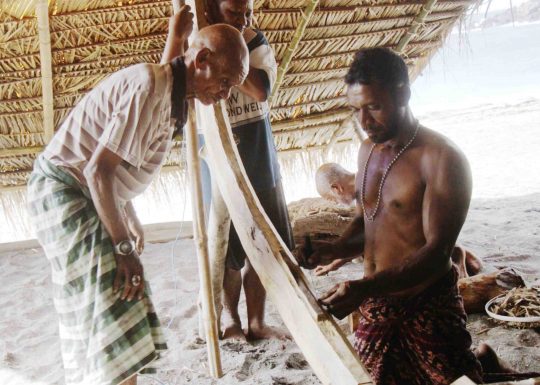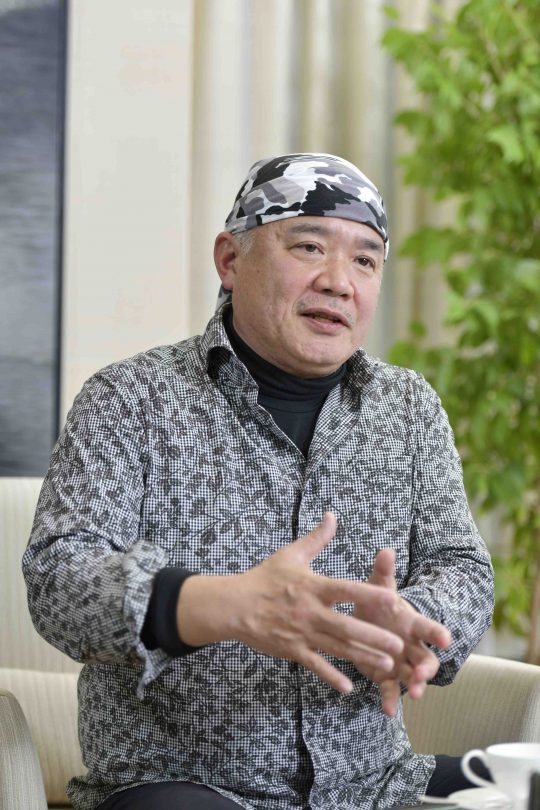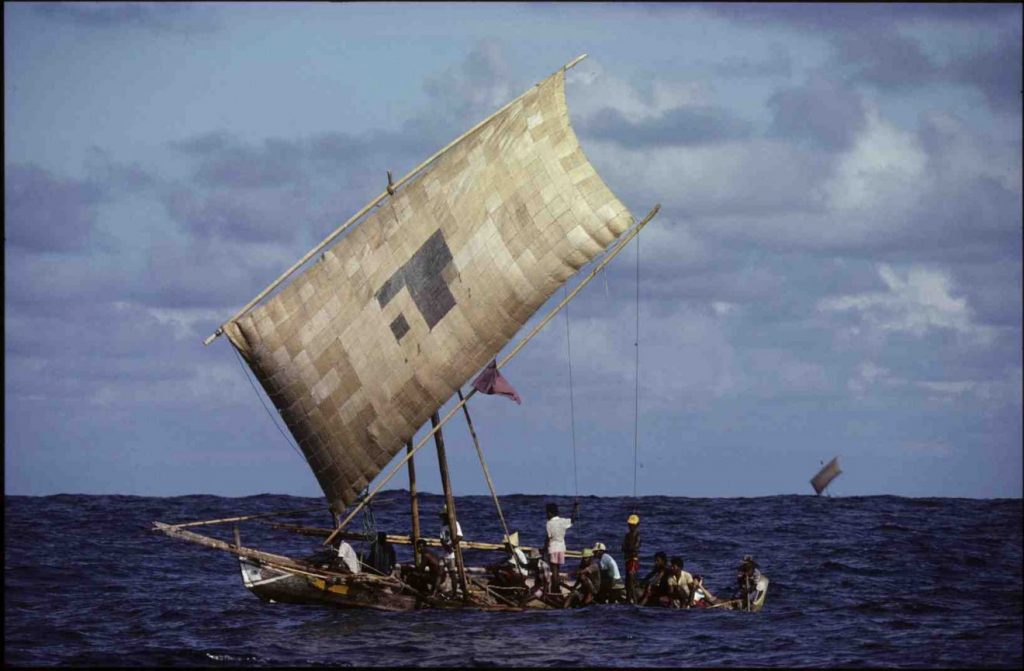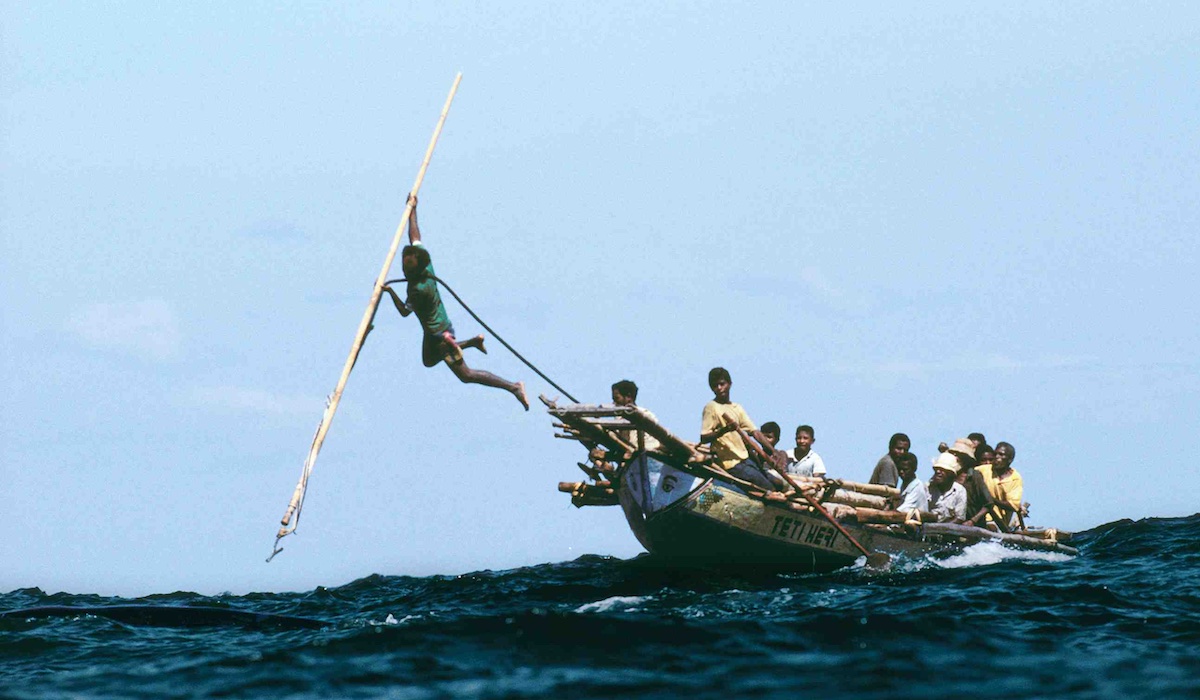~~
Lamafa, a documentary about life in a remote Indonesian whaling village, devotes no time to the tangled debate around hunting whales. Instead the film focuses on the simple lives of the villagers and the harsh splendor of their world, an approach that has endeared it with audiences.
The Japanese film was awarded the prestigious Grand Jury Award for Best Documentary Feature at the Guam International Film Festival. The award is given before the film is shown to general audiences, leaving the possibility for further honors.
In Japan, its run in theaters has been extended and expanded to more locations, buoyed by support from critics and viewers.
“There is little discussion of the whaling aspect of the film,” says Director Bon Ishikawa in an interview. “The focus is on the beauty of the people as they go about their lives.”
Ishikawa filmed and edited the movie over three decades, working around his job as a photographer, only to see its release coincide with state-of-emergency declarations in cities across Japan due to the COVID-19 pandemic.
Still, the documentary has received positive reviews on influential Japanese rating sites like Filmarks (currently 4.1 out of 5 stars) and Yahoo! Japan’s movie portal (4.28 out of 5 stars). Turnout has also been strong, with many showings selling out despite continuing cautions about the spread of COVID-19.

This, together with strong support on social media, has led movie theaters to add more showings, a rarity for an independent documentary. Two months after its September launch, theaters in Hiroshima and Fukuyama have added new showings, while new screenings in Fukuoka have also been added. Ishikawa has traveled the country, often appearing in theaters to take questions directly from audiences.
Lamafa, named after the honorable title for whalers in the tiny Indonesian village of Lamalera where it was filmed, documents the lives of several families. Ishikawa, who self-financed the film, gained the trust of his subjects to the point where they allowed him to record their daily lives, funerals, local markets, and their dramatic whale hunts at sea.
Isihikawa is a professional photographer who has been capturing images and video in Lamafa for nearly 30 years. His book of pictures on the town, The Last Whale Hunters (Shinchosha Company) was published in 1997. This meant that in the film he was able to record multiple generations of the local whaling families.

Lamafa – Japanese title Kujirabito, or “The Whale People,” details the traditional lives of the village, where the locals build most of their equipment, including boats, harpoons, and ropes, from scratch. The movie introduces the grizzled whalers and the children that aspire to follow them to sea, their wives and widows, and the priests and shamans that bless their hunts.
The film’s most powerful scenes are shot at sea, where Ishikawa used a collection of modern film techniques to record never-before-seen footage of the villagers traditional whaling hunts. These included steady cams for the boats as they were smashed by angry whales, drones for overhead shots, and underwater cameras and microphones to capture the fray from the whales’ point of view.
Whaling is a controversial subject, and the animals are considered sacrosanct in many parts of the world. But Lamafa hides nothing of the hunts, showing the harpooners as they dive into the water to harpoon their prey, and the bloody struggles of the giant whales after they have been struck.

The flensing process and the villagers’ strict traditions for dividing the different parts of the whale are also shown in detail. These scenes resonate because the film takes the time to introduce the whalers, their families, and portray their dependence on the giant sea mammals.
Lamafa depicts a society straddling two eras, where villagers sacrifice chickens in pagan ceremonies but also attend church, ponder moving to bigger cities for lonely but more lucrative work, and trade whale meat from their catches for fresh produce from neighboring villages.
“The movie is more about the effects of globalism than it is about whaling,” said Ishikawa.
Author: Jay Alabaster

